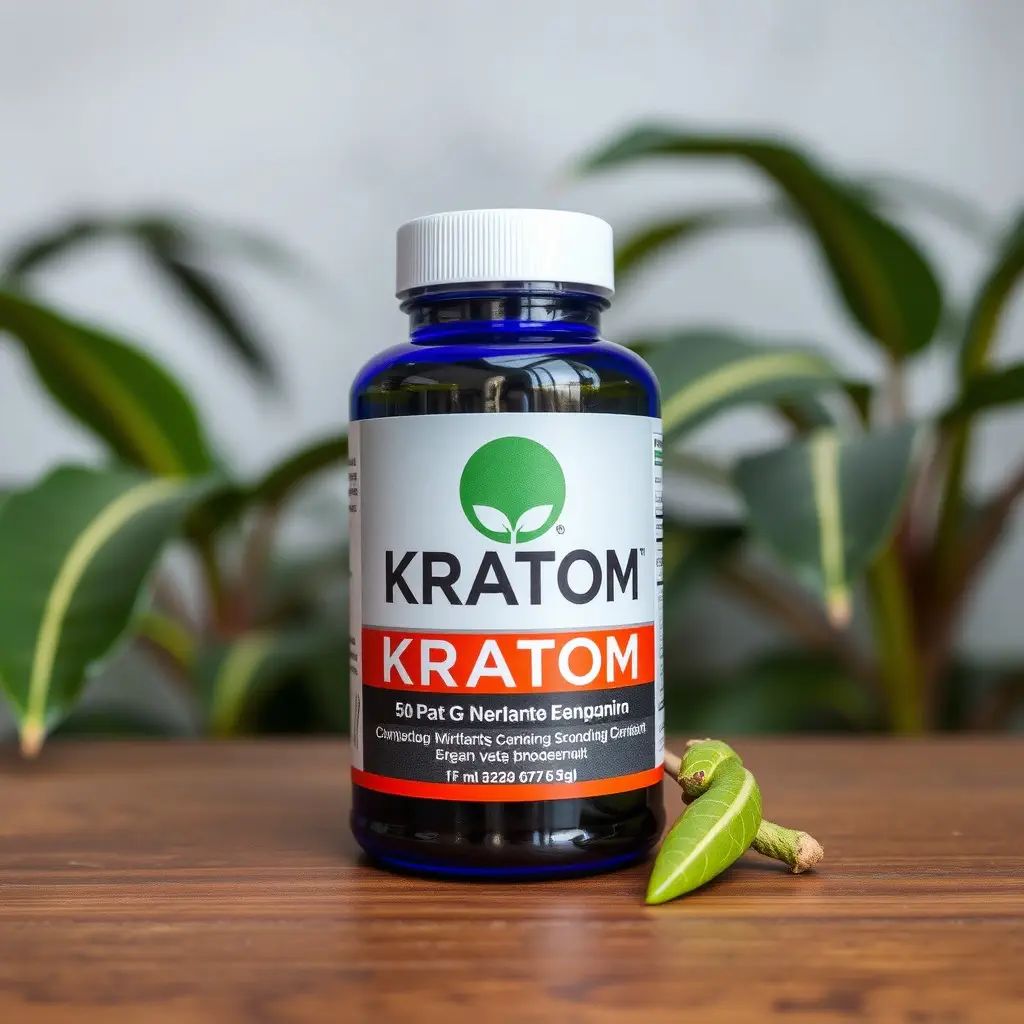Kratom, a tree from Southeast Asia, has been studied for its potential anti-inflammatory properties that could offer physical health benefits. Its alkaloids, mitragynine and 7-hydroxymitragynine, may interact with opioid receptors to help manage pain by reducing inflammation. Preclinical research indicates these compounds can inhibit inflammatory cytokines like TNF-alpha and IL-6, which could be beneficial for conditions such as arthritis, cardiovascular disorders, and certain cancers. The anti-inflammatory effects of kratom are under exploration, with the aim of clarifying its role in inflammation management within holistic health practices. While promising, further research is necessary to understand kratom's full impact on human inflammatory processes and its integration into treatment protocols for enhancing physical health benefits. Users are advised to approach kratom with caution, adhering to medical guidance, due to the complexity of inflammation and individual differences in response to natural supplements like kratom.
Exploring the potential anti-inflammatory properties of kratom, this article delves into how this plant-based compound may offer significant physical health benefits through inflammation reduction. We examine the scientific evidence supporting its use and elucidate the mechanisms behind its effects, providing a comprehensive overview of integrating kratom into a holistic wellness regimen for optimal health. Join us as we uncover the multifaceted role of kratom in modulating inflammation and its implications for enhancing overall well-being.
- Unraveling the Anti-Inflammatory Effects of Kratom and Its Implications for Physical Health
- Kratom's Role in Modulating Inflammation: A Deep Dive into Scientific Studies and Mechanisms
- Integrating Kratom into a Holistic Approach for Inflammation Reduction and Overall Well-being
Unraveling the Anti-Inflammatory Effects of Kratom and Its Implications for Physical Health

Kratom, a tropical tree natively found in Southeast Asia, has garnered attention for its potential anti-inflammatory effects, which may contribute significantly to physical health benefits. Scientific studies suggest that kratom contains alkaloids such as mitragynine and 7-hydroxymitragynine, which are believed to modulate inflammation. These compounds interact with the body’s opioid receptors and may offer a natural alternative for pain management, thereby reducing inflammatory responses. The anti-inflammatory properties of kratom are under investigation for their role in various conditions where chronic inflammation plays a detrimental role. For instance, these effects could potentially alleviate symptoms associated with inflammatory diseases such as arthritis and fibromyalgia, enhancing overall well-being. However, it is crucial for individuals to approach the use of kratom with caution, adhering to recommended dosages and professional medical advice, given the complexity of inflammation processes and individual health variations. Further research is necessary to fully understand the extent of its anti-inflammatory impact and how it can be integrated into comprehensive treatment plans for improved physical health outcomes.
Kratom's Role in Modulating Inflammation: A Deep Dive into Scientific Studies and Mechanisms

Kratom, a tropical evergreen tree native to Southeast Asia, has been traditionally used for its stimulant and sedative effects. Recent scientific studies have begun to shed light on kratom’s potential role in modulating inflammation, a key component of the body’s immune response. The leaves of kratom contain a variety of alkaloids, including mitragynine and 7-hydroxymitragynine, which have been the subject of research for their anti-inflammatory properties. These compounds are believed to interact with various receptors in the body, notably the opioid receptors, which may contribute to the modulation of inflammation. Preclinical studies have demonstrated that kratom alkaloids can inhibit the production of pro-inflammatory cytokines, such as TNF-alpha and IL-6, thereby potentially reducing the body’s inflammatory response. This is significant as excessive inflammation is associated with a range of chronic diseases, including arthritis, cardiovascular diseases, and certain cancers. The anti-inflammatory effects observed in these studies suggest that kratom may offer therapeutic benefits for managing inflammation-related conditions, contributing to the broader physical health benefits of kratom. However, it is important to approach these findings with caution, as human clinical trials are still required to fully understand the extent and mechanisms by which kratom can influence inflammatory processes in the human body.
Integrating Kratom into a Holistic Approach for Inflammation Reduction and Overall Well-being

Kratom, a botanical derivative from the Mitragyna speciosa tree, has garnered attention for its potential role in holistic health practices, particularly in managing inflammation. Its alkaloid profile, which includes mitragynine and 7-hydroxymitragynine, interacts with the body’s opioid receptors, offering a natural approach to pain relief and inflammation reduction. When integrated into a comprehensive wellness strategy, kratom can contribute to the physical health benefits it offers. It’s important for individuals to consider the proper dosage and strain selection to align with their specific needs and health conditions. Proponents suggest that kratom can modulate immune responses, which may help in mitigating inflammatory reactions without the side effects often associated with pharmaceutical interventions. Furthermore, its analgesic properties can alleviate chronic pain, a common symptom of inflammation-related disorders, thereby enhancing overall well-being and quality of life. However, it is crucial to approach the use of kratom with caution, as its efficacy and safety are subject to ongoing research and regulatory oversight. Consultation with healthcare professionals is essential for safe integration into a holistic health regimen aimed at inflammation reduction and maintaining overall wellness.
In conclusion, the potential of kratom as an anti-inflammatory agent holds significant promise for those seeking natural alternatives to manage inflammation and promote physical health benefits. The scientific studies and mechanisms elucidating its modulatory effects on inflammation provide a foundation for considering its integration into holistic health strategies. While further research is necessary, the current evidence suggests that kratom may play a beneficial role in reducing inflammation as part of an overall wellness plan. As with any supplement or treatment, it is advisable to consult healthcare professionals before incorporating kratom into one’s regimen, ensuring safe and effective use for maintaining optimal physical health.






